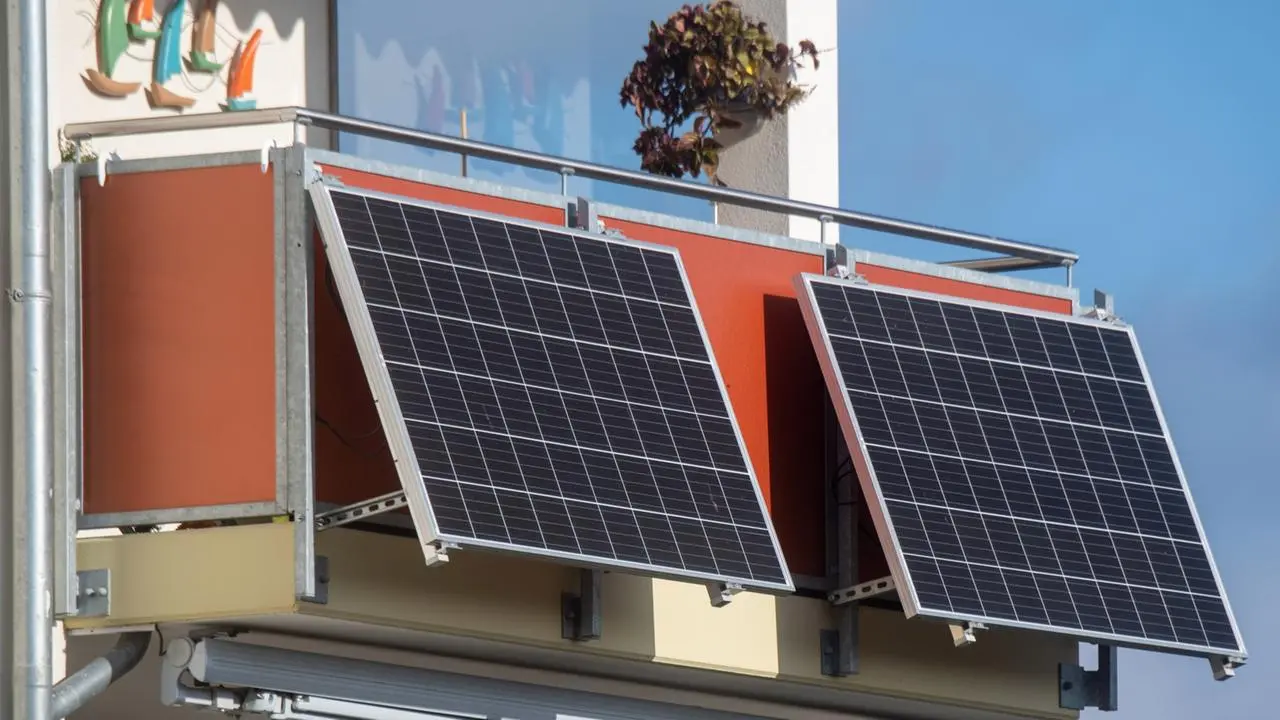- cross-posted to:
- [email protected]
- cross-posted to:
- [email protected]
Just 10 years ago, landlords could ban you from putting solar cells on your balcony because it makes their building look “messy”. Now Germany is really pushing forward to let everybody put solar modules on their balcony with these new laws. How is legalization of balcony solar cells in your country? Is setting up solar modules on your balcony easy or difficult law-wise?
Translated by Google:
In the future, private individuals will be able to operate mini solar systems as balcony power plants without complicated registration
This is the coolest part. As I understand it you’ll be able to export 500w to the grid without requiring approval of your provider. The new units just plug into the wall and back feed power into your house to reduce your bill.
Depending on how the law is written, I can imagine people putting a battery between the solar and inverter so they could capture more energy and export the maximum 500w all day & night
Does this make sense if the surface area will be so neglegible anyway? I feel like the ~6m² you can fit onto the side of a balcony is nothing compared to a whole field/flat roof covered with them…
Well let’s do some back of the envelope math.
Conservative estimate: 6m^2 about 6000w of sunlight x 20% panel efficiency x 4hrs/day = 4800wh or 9.5 hrs at max 500w inverter output.
Liberal estimate: 6m^2 about 7200w of sunlight x 25% panel efficiency x 5hrs/day = 9000wh or 18 hrs at max 500w inverter output.
I think this would be worth it for an apartment dweller who doesn’t have access to the roof or a whole field. And producing the power when and where it’s used reduces transmission costs.
6 to 9kWh is a generous amount to run a small home on
https://re.jrc.ec.europa.eu/pvg_tools/en/tools.html
Run that tool with two 400W panels for more exact estimates.
The important thing on backfeeding is that utility workers will need to isolate at more points before working, otherwise they will get injured by backfeeding/battery systems if they run on infrastructure they are working on.
Should not be an issue. The inverters that feed into the grid need to follow the phase and frequency of the grid. If the grid is down, there is nothing to follow and it will not feed any power into the grid.
Hey, I learned this the other day from Practical Engineering!
I think an approved set of solar panels and inverters will be able to streamline the process for sure and help quell concerns of electrical worker and grid safety.
I’ve never understood why this isn’t the responsibility of the utility to prevent back feeding at the meter when the grid is down.
It’s a good question but say they want to bring power back up to the neighbourhood as quickly as possible, and they would have to go to each house and shut off each connection which would take a while even if it were accessible outside without needing to inform the property owners. One residential transformer usually serves from 1 to 15 or so households. Many transformers are on one branch that extends from a substation. So depending on where they isolate, just one customer out of hundreds can backfeed which can make the entire branch dangerous to work, since normally it is all expected to be off on the other side. Putting the responsibility on the utility to isolate every downstream point is time consuming and just extends blackouts. However if they were to isolate smaller sections up and downstream it might make it easier.
I think I was more advocating for automatic switching at the meters when grid power isn’t sensed at the meter. The same type of sensing that goes into larger solar inverters to prevent back feeding during power outages today. 20-40+ years ago your argument about having to go home to home manually shutting off connections would have made sense, but these days technology is advanced far enough that it can be done automatically without human intervention, as soon as the grid goes down. Then brought back up when grid power returns.
I think those technologies are the reason why it’s easier for government to permit small personal solar installations now compared to before.
With generators it’s harder to trust everyone that might have one.
Those regulations were made when solar power simply wasn’t a thing. Upgrading an entire grid takes time. But of course, the utilities would rather lobby against change than actually get off their butts and change.
Network operators and electricity sales are decoupled EU-wide, meaning that the network operator doesn’t really care if you feed in energy because they’re not selling you any anyway. They’re just operating the network, getting paid by whoever uses it. They care about the stability of the network but those solar inverters stabilise the frequency it so it’s actually a net positive for them.
Of course, your municipality might have sold off its utility and now you’re dealing with private sharks who invest nothing and just bleed everything dry. Or you’re dealing with a CDU council and major who hate renewables because it’s what the greens want.
Lots of people are already doing that. I’ve seen kits of solar cells and batteries being sold.
I got a tiny one on my balcony last year. With WFH it doesn’t put anything through to the grid but already lowered our consumption by 1/10, which is pretty amazing. Plugs into a regular socket. Power provider exchanged the meter to be able to handle it for free, and everything else was also very smooth. I am very happy with it and would put up more, if I had the space.
“To be able to handle it” means a meter that will not record any negative consumption to prevent them from having to pay you for excess energy.
Means a meter that records input as well as output and no, Germany so far does not have anything in place where regular folk get paid for what they input.
But as I said, everything I generate goes directly into my own consumption, so I don’t mind much.
Basically that. As long as he’s using 100% himself it doesn’t really matter, but a friend of mine has one of those old Ferraris meters and getting full price for every kWh fed to the grid means, the whole thing pays for itself within two years.
Do you have a link to some thing like the one that you got?
I would really like a solution like this, not some full on integrated into my house, sells surplus back to the grid kind of solution, just some thing to slightly reduce how much I fall back to the grid for power without insane installation costs would be amazing.
Google for “Balkonkraftwerk”.
I got my stuff from priwatt. They got most types of solutions. Possibly a bit more expensive than elsewhere, but they handle a lot of the paperwork as well.
We should be allowed to install cells on our windows too, if we can have curtains we should be able to have solar.
At least in Germany it is legally required that rooms get a certain amount of natural light. There are transparent solar panels in development though, which could be just as much as a foil being put onto the glass itself. Not as effective of course, but still.
The stuff about rooms having solar access are for designers and architects to ensure they design to put those rooms in appropriate places to get those rates
Also to protect against development that would shade such a room (but actually the whole yard in my jurisdiction)
Do you mean installing the cell across the window glass? A vertically installed solar cell?
super easy
Barely an inconvenience.
How does this work in practice? I saw one where you plugged the solar cell into a device and the device plugged into a regular wall socket.
Is it really that easy?Yes with a grid tie inverter it’s pretty much that easy. But doing it yourself this way can be dangerous to electricians who thought they cut the power. If the “island protection” on the inverter fails to disconnect after the loss of power those wires could still be hot.
Edit fixed a word
I would hope electricians would always double check the line they’re working on regardless.
What’s interesting about this is that you don’t have to necessarily pull permits for electrical work, as nobody is running conduit or attaching to electrical panel.
Im grandfathered into an old solar rate plan, and if I change the system or add more panels I’ll lose that privilege. However, if I don’t have to tell the city or utility anything, that opens the door for expanding with balcony solar panels.
Sounds nice, unfortunately I don’t even see the sky from my apartment :(
I have a almost straight South facing living room window with no houses on the other side but I doubt my landlord would be okay with drilling stuff in and onto the facade.





